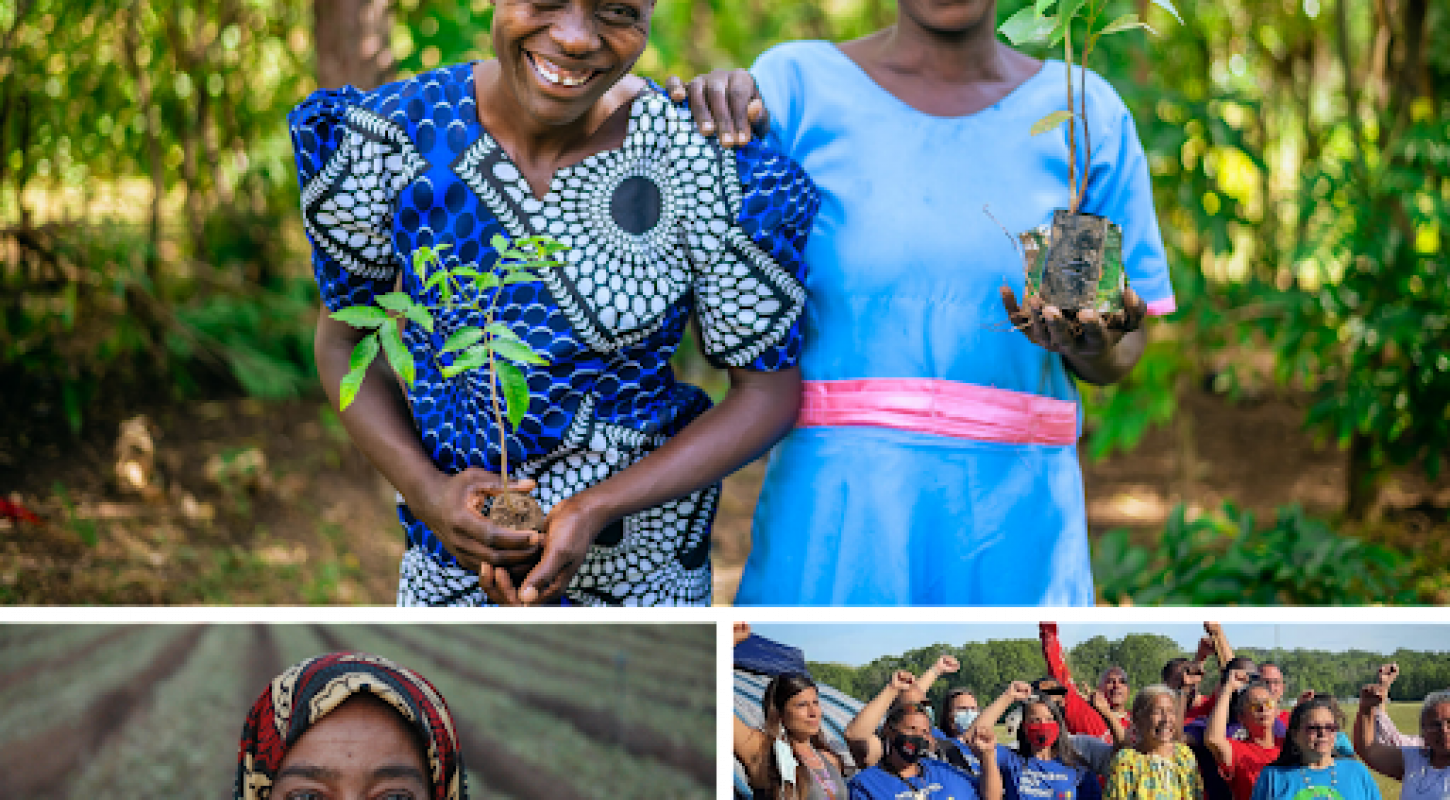In Binta Yahaya’s hometown in Nigeria, women and girls cook over open fires. These traditional cookstoves are a leading contributor to climate change and make up more than half of all global soot, or “black carbon” emissions. The burning of fuels such as wood, charcoal, and kerosene can lead to chronic respiratory infections caused by inhaling the toxic smoke.
After recognizing this health crisis in her community, Binta attended a Women’s Initiative for Sustainable Environment (WISE) Clean Energy Training hosted by Women’s Earth Alliance. There, she gained entrepreneurial, leadership, and technical skills, as well as a grant to launch a clean cookstove enterprise.
Within a week, she had sold 70 clean cookstoves to women in her village. Within a year, she’d sold more than 1,000 clean cookstoves — protecting the planet, and the women of her community.
Every day around the world, women like Binta risk their lives to ensure their families, communities, and future generations can access healthy food, safe water, clean energy and secure lands to call home.
That’s where Women’s Earth Alliance (WEA) comes in. Since 2006, WEA has trained, resourced, and supported women leaders who are innovating, designing, and implementing grassroots solutions to protect the earth and end the climate crisis. WEA brings together a global alliance of grassroots women leaders and like-minded individuals.
Women shoulder the heaviest burdens of the climate crisis
Climate change is a threat multiplier. It exacerbates existing structural and gender inequities, which means that as ecological crises intensify, women and girls are hit the hardest.
Women and girls make up 80 percent of the world’s climate refugees and are 14 times more likely to die in a climate-related disaster than men. This is often because they are the last to eat or be rescued; face greater health and safety risks as water and sanitation systems become compromised; experience increased sexual violence and trafficking during climate-induced displacement; and are more likely to lose their jobs and sink into poverty. For Indigenous women and women of color, these risks are exponentially higher.
Women are also those most severely impacted by climate change-inducing industries, like extractive oil and gas projects. Many of the communities where these projects are located have become sites of chemical manufacturing and waste dumping, and are known as “sacrifice zones.” These industries also lead to the introduction of large encampments of men (“man camps”) who work for the oil and gas industry. This causes devastating environmental violence including sexual and domestic violence, increased drug and alcohol use, murders and disappearances, reproductive illnesses and toxic exposure, threats to culture and Indigenous lifeways, crime, trafficking and other social stressors.
Women-led solutions are key to tackling climate change.
Although women are disproportionately impacted by the climate crisis, their leadership has never been more pivotal to reversing global warming and all the threats it poses.
A study of 130 countries found that women in government positions are more likely to sign on to international treaties to reduce global warming than men. And when women participate equally with men in politics and policymaking, climate policy interventions are more effective.
Where women have higher social and political status, their countries produce 12 percent fewer CO2 emissions and boast more protected land areas than in countries where women are disproportionately disenfranchised. In fact, Indigenous women’s decision-making in local forest management significantly improves forest conditions and conservation. And increasing evidence shows that women’s empowerment, education and leadership could reduce 85 gigatons of atmospheric CO2.
Yet, the women who step forward to prevent environmental destruction and injustice face an uphill battle. Deep structural inequities and a lack of support rob women—half the global population—of their full potential to profoundly shape our communities, our values and the future of this planet.
Imagine what’s possible when those barriers are removed.
WEA Leaders Crystal Cavalier-Keck (Occaneechi Band of the Saponi Nation) and Desirée Shelley Flores (Monacan) are at the frontlines of the effort to stop the Mountain Valley Pipeline (MVP) in the United States.
The MVP is a proposed 303-mile pipeline carrying fracked gas from West Virginia to Virginia, with a proposed extension into North Carolina. It endangers multiple watersheds and sources of clean water for hundreds of communities, violates Indigenous rights as bulldozers plow through sacred sites, and it will be the single largest source of greenhouse gasses in Virginia, producing annual emissions of over 89 million metric tons of carbon dioxide equivalent.
Crystal and Desirée have sparked an entire movement to stop the MVP in its tracks. As a result, at a regulatory hearing on permitting for the MVP last year, Virginia became one of the first states to recognize the disproportionate impact of pollution on Black, Indigenous, and low-income communities.
By standing with Women’s Earth Alliance, we can ensure leaders like Binta have the training they need to launch clean energy eco-enterprises that will turn the dial on carbon emissions. And we can connect leaders like Crystal and Desirée to a national and global network of partners and allies who will bolster and amplify their advocacy against a dangerous and destructive pipeline.
Support Women’s Earth Alliance today. Just $20 can help a woman buy the seeds she needs to start a climate-resilient garden, which will provide healthy and sustainable food for her family and her community. A gift of $40 will enable a woman farmer to convert her conventional farm to organic, ensuring healthy food for our communities, healthy soil for our planet, and more.
Together, we can empower women’s leadership and create powerful solutions that ripple out across regions, nations, and our entire planet—now and for generations to come.

